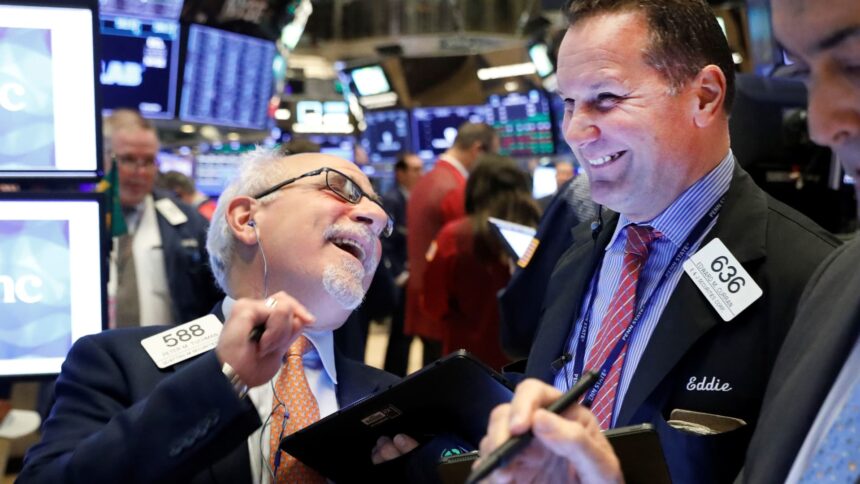Day three of the federal government shutdown passed without resolution on Friday, raising concerns about the political climate and its potential implications for the economy. Despite this backdrop, the stock market experienced strong performances earlier in the week, reaching multiple all-time highs. The S&P 500, in particular, posted a fractional gain, marking its 29th record-high close since the market’s lows due to tariffs in early April.
While the Nasdaq index saw a modest decline on Friday, it had a notable achievement with its record close on Thursday being the 30th since April. Both indices performed well overall, boasting four positive weeks out of the previous five. Market analysts expressed a sense of optimism, with Jim Cramer commenting just before the federal funding deadline that a government shutdown should not be a cause for concern.
In terms of sector performance, health-related stocks emerged as leaders for the week. Notably, shares of life sciences company Danaher surged over 16%, while drugmaker Eli Lilly similarly rose by nearly 16%. This uptick followed President Donald Trump’s agreement to exempt Pfizer from pharmaceutical tariffs in return for the firm’s commitment to reduce drug prices and boost domestic manufacturing.
Healthcare was identified as the strongest sector within the S&P 500 this week, with utilities and information technology trailing closely behind. The artificial intelligence (AI) sector continued to thrive, driving up demand for utilities to support the necessary infrastructure. Tech stocks benefited separately, as Nvidia’s shares set new records.
Boeing’s stock was another focal point, following news of easing restrictions from the Federal Aviation Administration (FAA). Analysts view this as an opportunity for Boeing to ramp up production, although there was also news that the debut of Boeing’s 777X widebody jet has been delayed to early 2027.
Nike made headlines after its quarterly earnings significantly surpassed analyst expectations, reflecting progress in CEO Elliott Hill’s turnaround strategy. The company had earlier forecasted a revenue decline but instead reported a positive revenue growth of 1%. This turnaround strength prompted the investment community to engage with Nike shares more actively.
In stock actions, the Club decided to take profits in Bristol Myers Squibb, following a rally in large-cap pharmaceutical stocks tied to the Trump-Pfizer agreement. While this decision resulted in a loss of approximately 20% on previously purchased shares, the Club’s long-term outlook remains dependent on the successful trials of its schizophrenia treatment.
Other market developments included a trim on Wells Fargo following a downgrade by Morgan Stanley, which cited limited catalysts for growth. Similarly, GE Vernova’s stock was downgraded by RBC Capital Markets due to challenges faced in the wind turbine sector. Apple was also downgraded by Jefferies, which raised concerns about the market’s excessive expectations for upcoming products.
Despite fluctuating analyst ratings, Jim Cramer advised a long-term strategy for investors, cautioning against reacting to frequent rating changes from firms like Jefferies. He emphasized that the market’s long-term health is supported by a company’s innovation capabilities, particularly in the case of Apple.
As the political uncertainty continues with the government shutdown, the investment landscape showcases resilience and adaptability, with various sectors responding to economic signals and corporate strategies rather than solely domestic political issues.







